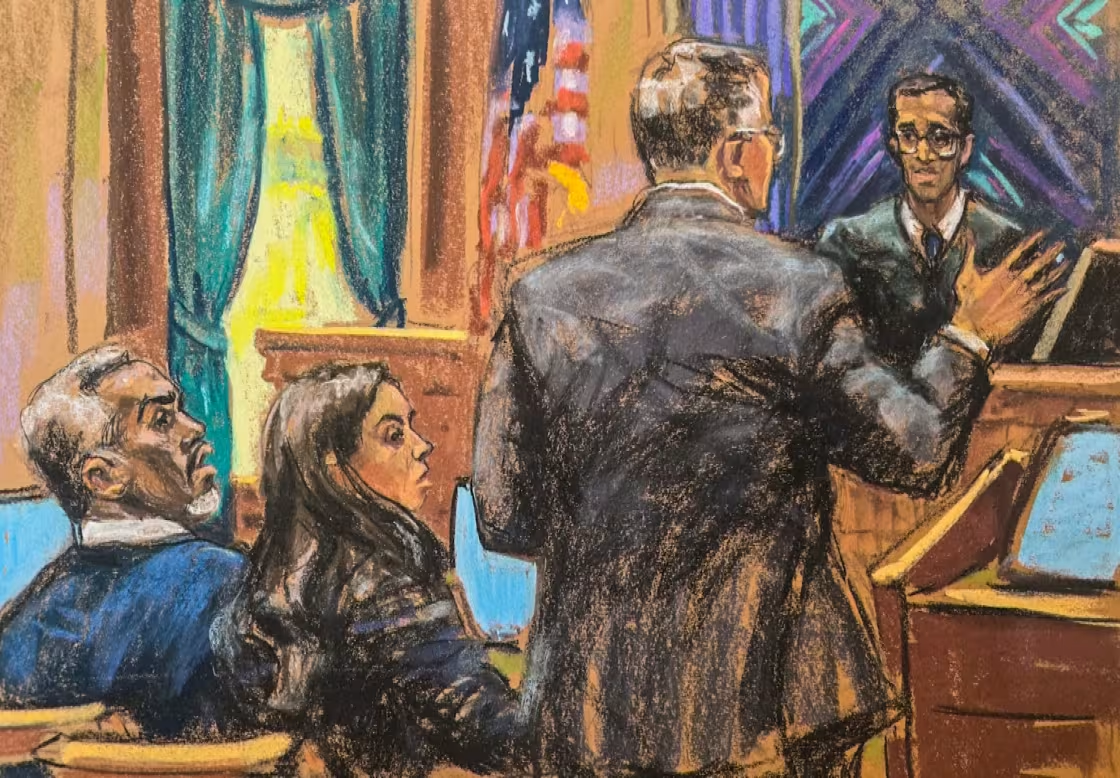Sean “Diddy” Combs long styled himself as a king of American hip-hop, cultivating a public image as a rap hitmaker and savvy entrepreneur whose influence stretched across entertainment, fashion and business.
But when opening statements start Monday in Combs’ federal sex trafficking trial in New York City, lawyers on opposite sides of the case will portray him in dramatically contrasting terms, underscoring how he has lost control of a reputation he once fiercely protected.
The federal prosecutors behind United States v. Combs plan to portray him as the ringleader of a sprawling criminal conspiracy, a serial abuser who used violence and threats to force women to participate in drug-fueled sexual encounters known as “freak offs.”
Combs’ defense lawyers are expected to forcefully reject that depiction, arguing he is being unjustly persecuted for consensual sexual activities with romantic partners. Combs has pleaded not guilty to five criminal counts, including racketeering conspiracy and sex trafficking.
In the end, a jury of 12 everyday New Yorkers will decide whether to convict Combs based in part on which narrative they believe.
Rachel Maimin, a former federal prosecutor for the Southern District of New York, said she believes Combs’ accusers’ testimony will be the single strongest element of the government’s case. At least three women who say they were victims are expected to take the stand during the eight-week trial.
“Victim testimony is always powerful, and it goes to the core of the case here, because the defense wants to prove all of these events were consensual,” said Maimin, whose record includes prosecuting criminal organizations engaged in racketeering.
“Nothing compares to a jury’s being able to evaluate a victim’s credibility in the courtroom and see what they suffered,” said Maimin, who practices white-collar defense law at the firm Lowenstein Sandler.
Prosecutors have not released a list of witnesses, but the allegations of the accuser the indictment identifies as “Victim-1” closely mirror those of R&B singer Casandra Ventura, one of Combs’ ex-girlfriends. Ventura accused Combs of rape and sexual abuse in a 2023 civil lawsuit.
The lawsuit was settled privately in a day without Combs’ admitting any wrongdoing.
Maimin offered a word of caution for the Southern District of New York, however, saying prosecutors should make it abundantly clear that they are not treating a high-profile, headline-grabbing celebrity trial “differently from any other case.”
“The prosecutors must treat Combs the same as any ordinary defendant,” she said. “Otherwise, they run the risk of pulling punches or of being seen to demonize Combs because of his celebrity in order to make the case. … It must be clear to the jury that he is receiving a fair trial.”
Combs’ defense team has signaled it will aggressively try to undermine his accusers’ credibility.
In a statement last month, Combs’ lawyers characterized the accusers as “former long-term girlfriends, who were involved in consensual relationships. This was their private sex life, defined by consent, not coercion.”
Marc Agnifilo, one of Combs’ attorneys, went further on Friday, telling the federal judge overseeing the case that there was “mutual violence” in the relationship between Combs and Ventura.
Combs’ defense has “made it clear” that it plans to hammer on the idea of consent and convince jurors that “the government is criminalizing an alternative lifestyle,” namely “swinging,” said Mitchell Epner, a former federal prosecutor for the District of New Jersey.
Tama Beth Kudman, a veteran criminal defense attorney, said she believes the defense team’s strongest element is that some of the accusers had relationships with Combs.
“This is not a case where the victims were held in isolation, with their identification papers in the defendant’s hands, told that they would be arrested, deported or even harmed by law enforcement if they attempted to leave,” Kudman said.
Prosecutors allege in the indictment that Combs “abused, threatened, and coerced women and others around him to fulfill his sexual desires, protect his reputation, and conceal his conduct.”
They allege he “ensured participation from the women by, among other things, obtaining and distributing narcotics to them, controlling their careers, leveraging his financial support and threatening to cut it off, and using intimidation and violence.”
Epner said he believes “the most difficult thing for the defense” will be the 2016 hotel security video showing Combs beating, kicking and dragging Ventura, better known by her stage name, Cassie.
After CNN aired the video last year, Combs apologized publicly, saying that his behavior was “inexcusable” and that he took full responsibility for his actions.
The judge in the case has ruled the video can be shown during the trial as evidence. Combs’ lawyers tried to get it excluded, arguing in part that it was “wholly inaccurate” and that it had been altered — claims CNN has strongly denied.
The video evidence is graphic, but it does not necessarily translate into a victory by default for prosecutors.
“No case is bulletproof. Many people thought that about the O.J. Simpson case, but look what happened,” said Mark Zauderer, a veteran New York litigator. “Nobody can be certain how jurors will react.”

